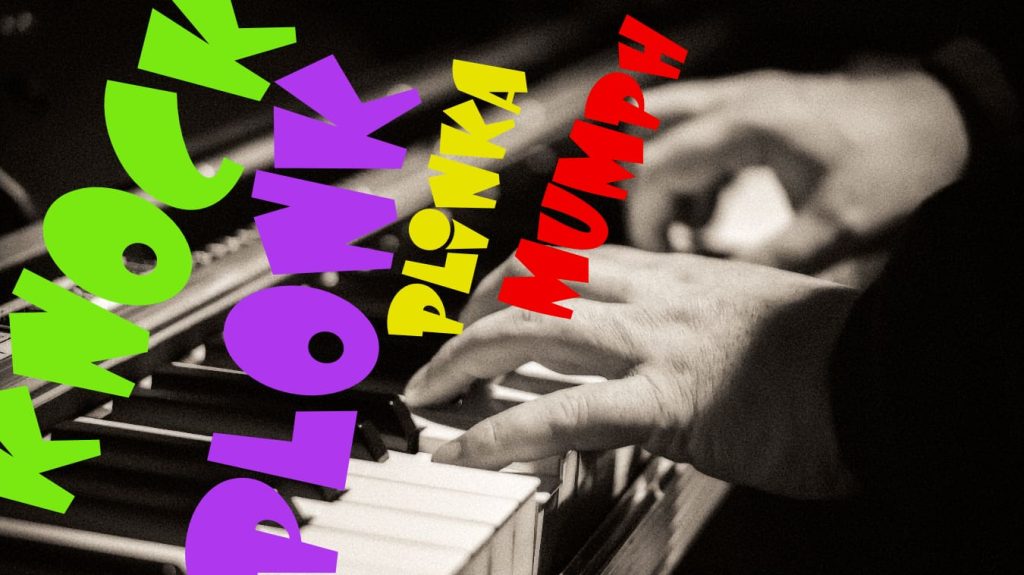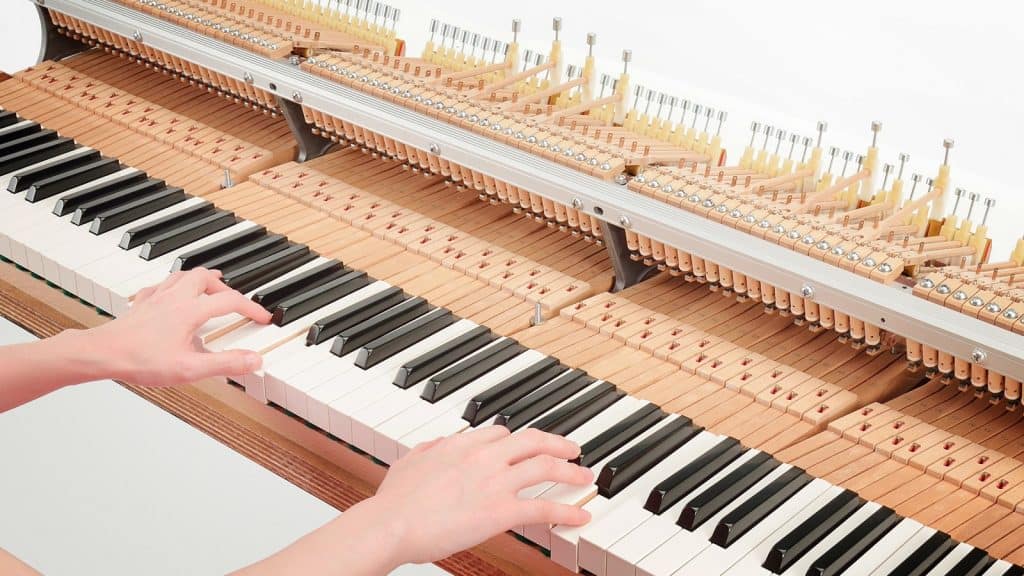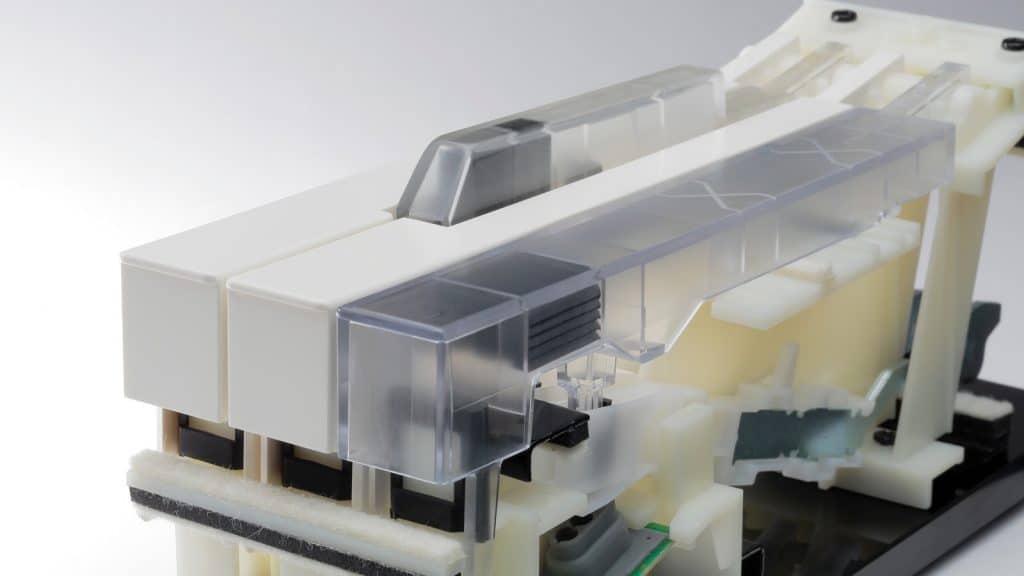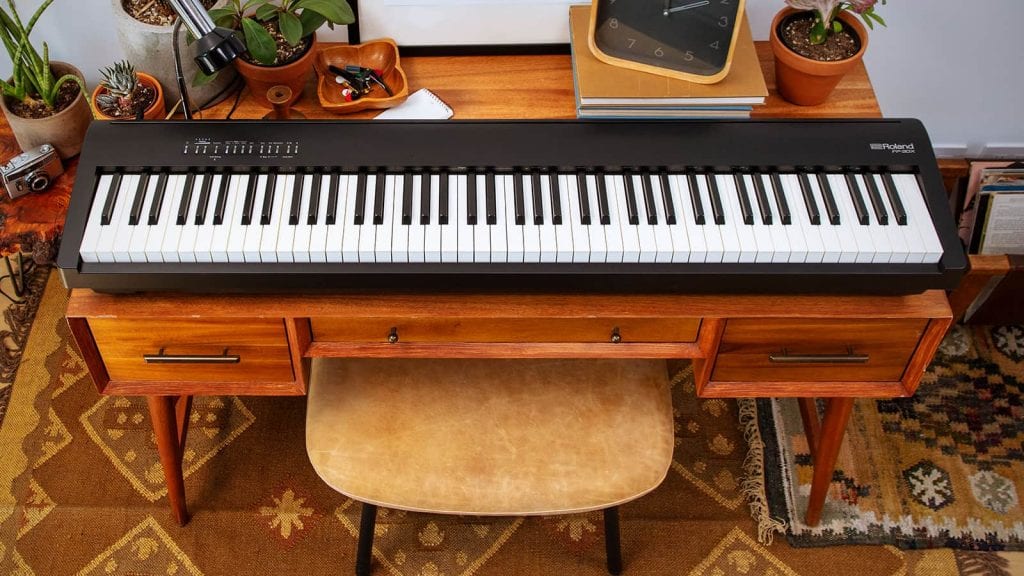What Causes Key Noise on Digital Pianos?
There are many different sources of mechanical noise on digital piano keyboards, and it is often the sum of all of them that becomes bothersome. If you are buying a digital piano, however, you should pay special attention to these details.
Key travel: Use your fingertip to balance the key back and forth between the two resting positions. Do you feel any friction and do you hear a distinct grinding or squeaking sound? If so, you better purchase a different digital piano!
Depressing the key: Playing the key will make a thumping sound, which is perfectly normal. It should sound rather muffled, and by no means resemble knocking or banging noises.
Quickly depressing the key: The hammer weight becomes more noticeable here – this is intentionally done to convey an authentic piano touch. However, you should not hear a hard knock here either.
Releasing the key: On the way back to its resting position, the key will bounce back slightly from the upper resting point, accompanied by a soft mechanical sound. This sound, however, should under no circumstances be a loud thumping noise.
When striking the keys, remember that not only the key but also the hammer mechanism is moving. On high-quality keyboards, the key and hammer weight movements are optimally balanced and synchronized. And let us not forget the sound we actually want to hear: The piano sound. Consider carefully: When or where during the keystroke is the sound produced? Can you hear the sound before the key is fully depressed? If so, you are better off not buying this digital piano.




